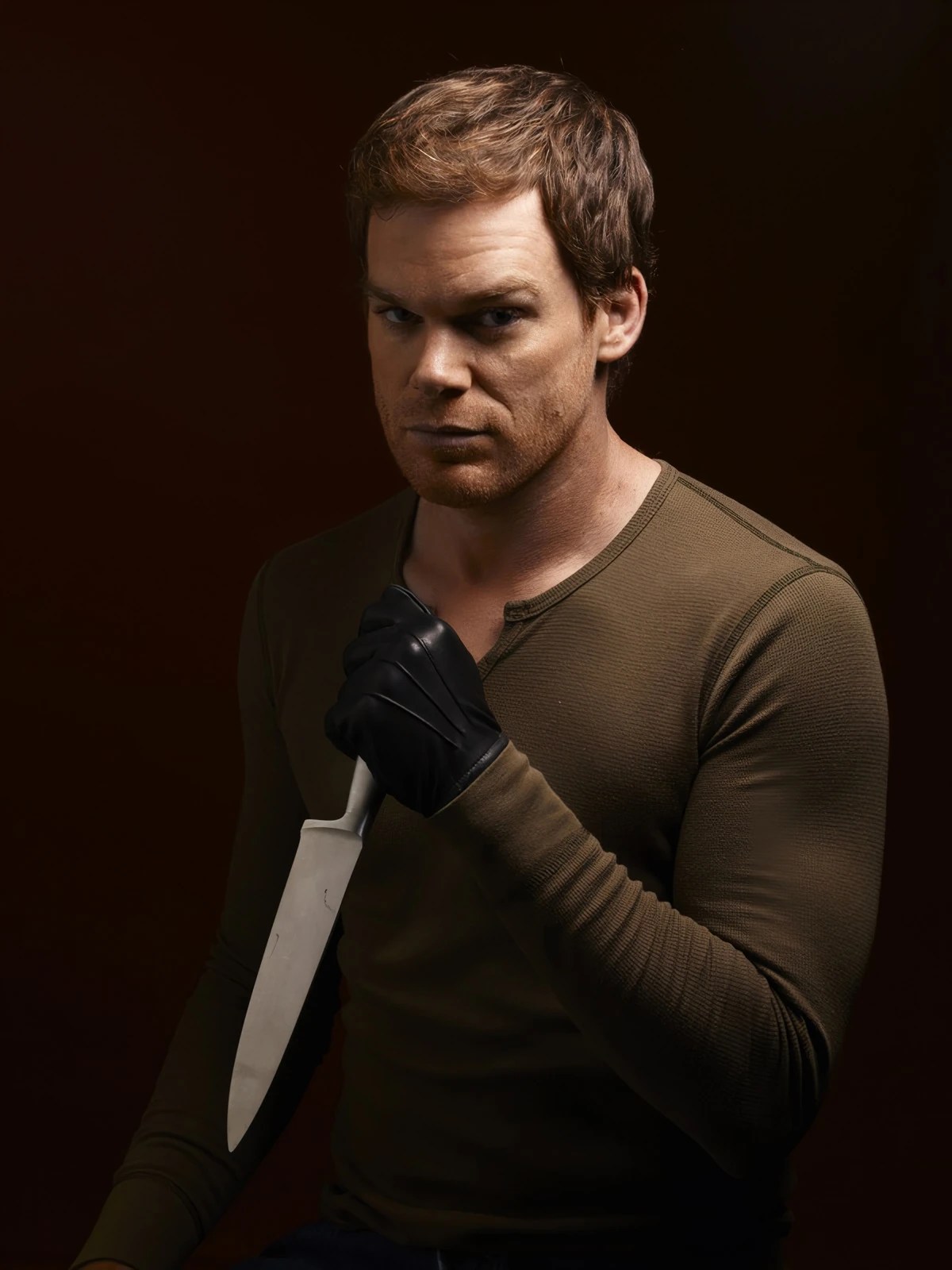In the world of television, few characters have captured the audience's imagination like Dexter Morgan, portrayed by the talented Michael C. Hall. This complex character, a forensic blood spatter analyst by day and a vigilante serial killer by night, has become an iconic figure in the crime drama genre. This article aims to explore the nuances of Dexter Morgan's character, the remarkable performance by Hall, and the cultural impact of the series "Dexter."
As we delve into the intricacies of Dexter's character, we will examine the show's themes, character development, and the moral dilemmas presented throughout its run. This exploration will not only highlight Hall's exceptional acting skills but also provide insights into why Dexter Morgan remains a significant cultural figure. Buckle up as we take you through the compelling world of Dexter Morgan.
The series "Dexter," which first premiered in 2006, has garnered a massive following and critical acclaim, making it one of the most beloved television series of all time. By understanding the character of Dexter Morgan, we can appreciate the depth of storytelling and character study that has made this show a landmark in television history.
Table of Contents
- Biography of Dexter Morgan
- Character Analysis of Dexter Morgan
- Michael C. Hall's Performance
- Themes in Dexter
- Cultural Impact of Dexter
- Dexter in Pop Culture
- Conclusion
- Sources
Biography of Dexter Morgan
Dexter Morgan is a fictional character created by author Jeff Lindsay, who appears in the "Dexter" series and its adaptations. The character is a complex anti-hero, leading a double life that serves as both a forensic expert and a vigilante serial killer. Below is a brief biography of Dexter Morgan:
| Attribute | Details |
|---|---|
| Name | Dexter Morgan |
| Occupation | Forensic Blood Spatter Analyst |
| Alias | The Dark Defender |
| First Appearance | Dexter (2006) |
| Portrayed By | Michael C. Hall |
| Notable Traits | Methodical, Intelligent, Morally Ambiguous |
Character Analysis of Dexter Morgan
Dexter Morgan's character is one of the most well-developed in television history. He embodies the duality of human nature, showcasing both the desire for justice and the darker impulses of violence. Here are some key aspects of his character:
- Complex Morality: Dexter operates under a strict moral code known as "Harry's Code," which dictates that he only targets other killers who have escaped justice.
- Isolation: Despite his relationships with family and friends, Dexter often feels isolated due to his secret life and inability to connect with others on a deeper emotional level.
- Struggle with Identity: Throughout the series, Dexter grapples with his identity as a killer versus his desire to be a good person, leading to intense internal conflict.
Psychological Depth of Dexter
Dexter's psychological profile is fascinating, showcasing traits commonly associated with sociopathy. He exhibits a lack of empathy and emotional connection, yet he possesses a strong desire to protect those he loves. This contradiction makes him a compelling character study.
Michael C. Hall's Performance
Michael C. Hall's portrayal of Dexter Morgan is a cornerstone of the show's success. His nuanced performance brings depth and authenticity to a character that could easily be perceived as one-dimensional. Here are some highlights of his performance:
- Emotional Range: Hall masterfully navigates the emotional complexities of Dexter, displaying moments of vulnerability alongside cold detachment.
- Charisma: His charm and charisma draw viewers into Dexter's world, making them empathize with his moral struggles.
- Physicality: Hall's physical presence and body language contribute significantly to the character's portrayal, conveying Dexter's internal conflicts without the need for dialogue.
Themes in Dexter
"Dexter" is rich with themes that resonate with audiences. Some prominent themes include:
- Justice vs. Revenge: The show constantly questions the morality of taking justice into one's own hands.
- Identity: Dexter's struggle with his identity as a killer versus a protector is central to the narrative.
- Family Dynamics: The impact of Dexter's secret life on his relationships with family members is a recurring theme throughout the series.
Cultural Impact of Dexter
The impact of "Dexter" extends far beyond its viewership numbers. The series has influenced pop culture in various ways:
- Merchandise and Spin-offs: The success of the series has led to merchandise, fan conventions, and even spin-offs.
- Discussion of Morality: The show has sparked discussions about morality, justice, and the nature of evil in society.
- Iconic Status: Dexter Morgan has become an iconic character, often referenced in other media and parodied in various forms.
Dexter in Pop Culture
Dexter's influence on pop culture is undeniable. Here are some notable references and impacts:
- Parodies and References: Dexter has been parodied in shows like "Family Guy" and referenced in various movies and television series.
- Fan Base: The dedicated fan base has created forums and communities dedicated to discussing the intricacies of the show.
- Influence on Crime Dramas: "Dexter" has inspired a new wave of crime dramas that explore anti-heroes and moral ambiguity.
Conclusion
In conclusion, Dexter Morgan, as portrayed by Michael C. Hall, is a multifaceted character that has left an indelible mark on television history. Through his complex morality, struggles with identity, and Hall's exceptional performance, Dexter has become a beloved and iconic figure. The themes and cultural impact of "Dexter" continue to resonate with audiences, ensuring its place in the pantheon of great television shows. We invite you to share your thoughts on Dexter Morgan in the comments below and explore more articles on our site.
Sources
For further reading and references, consider the following sources:




